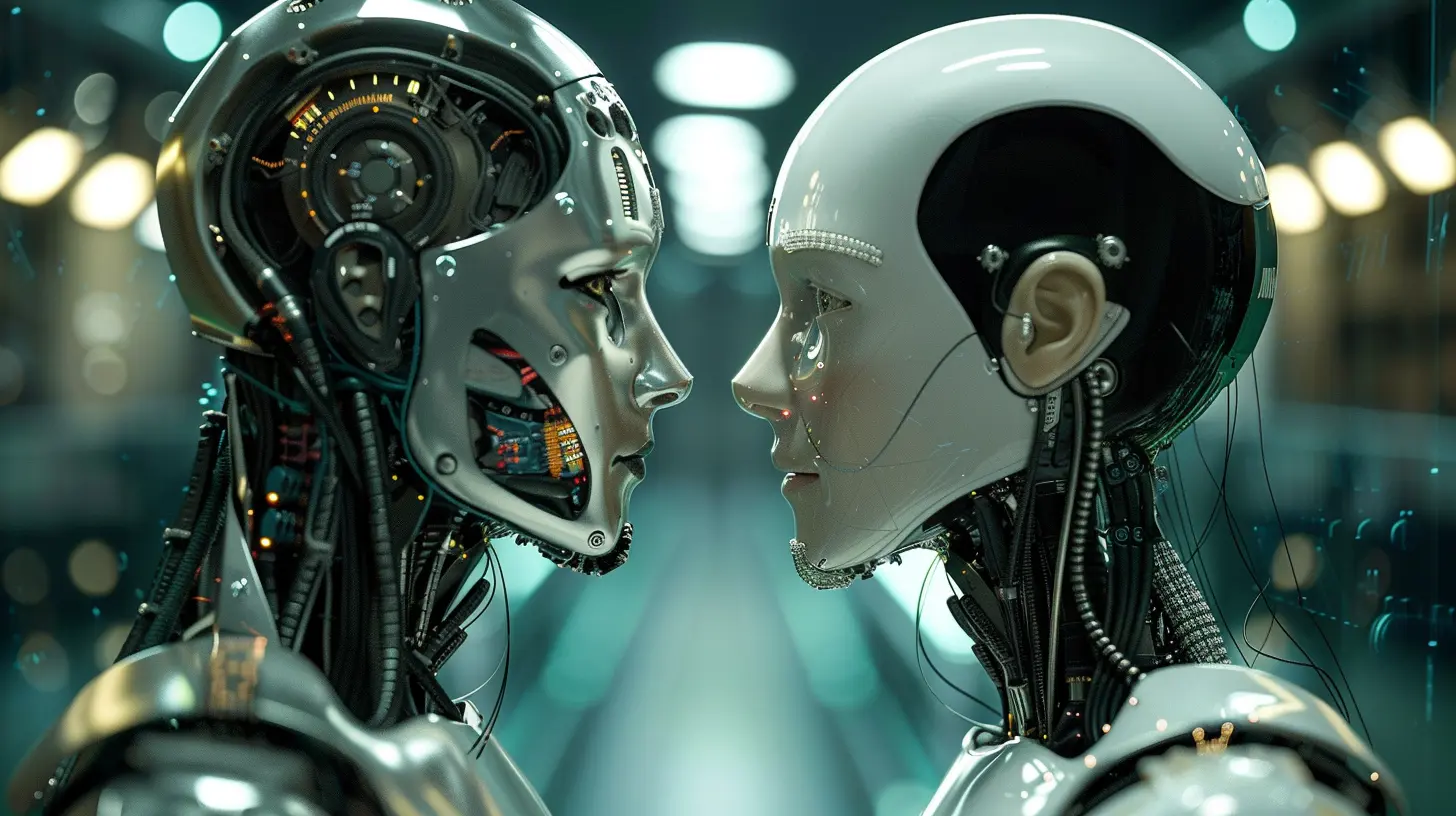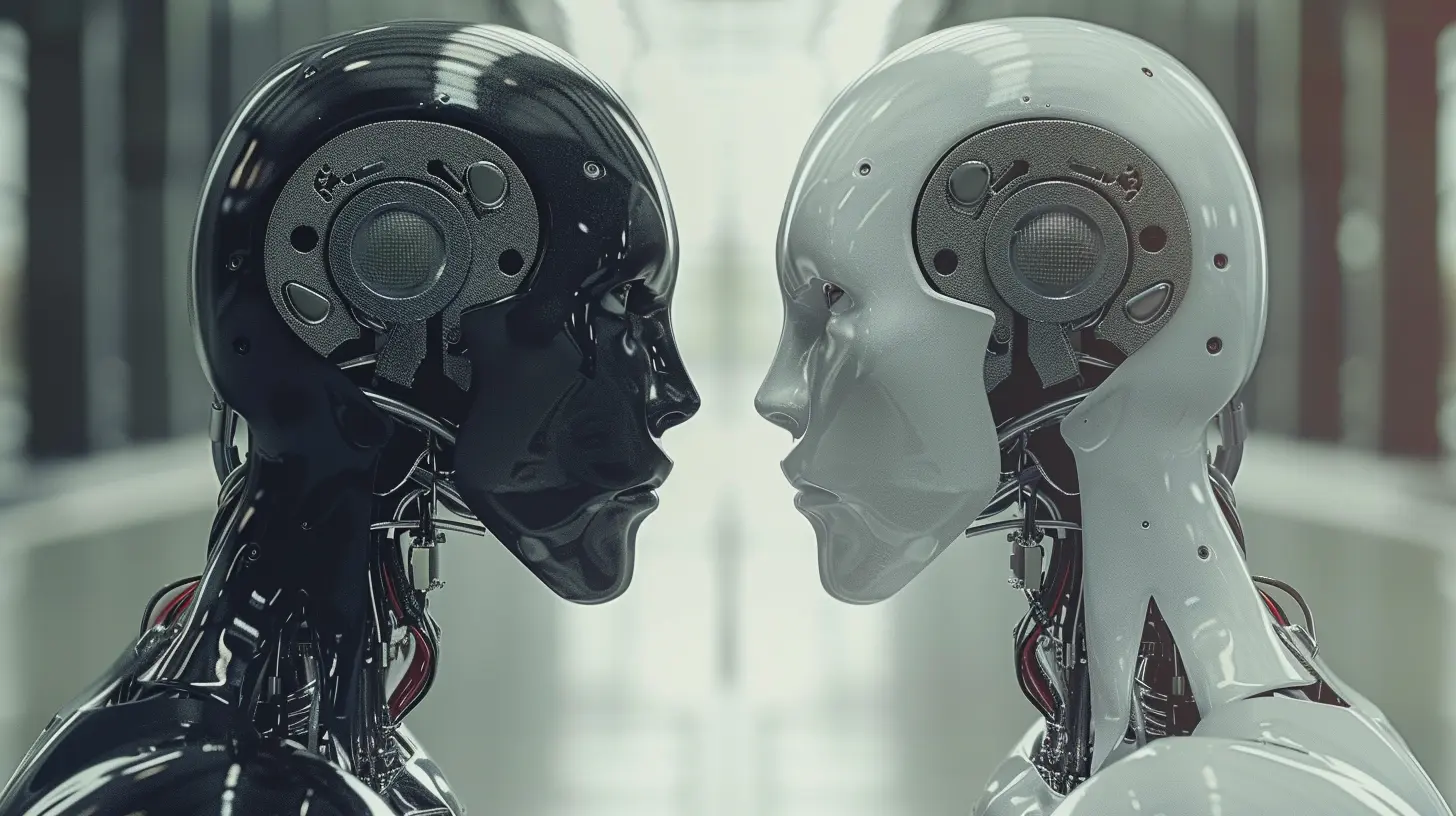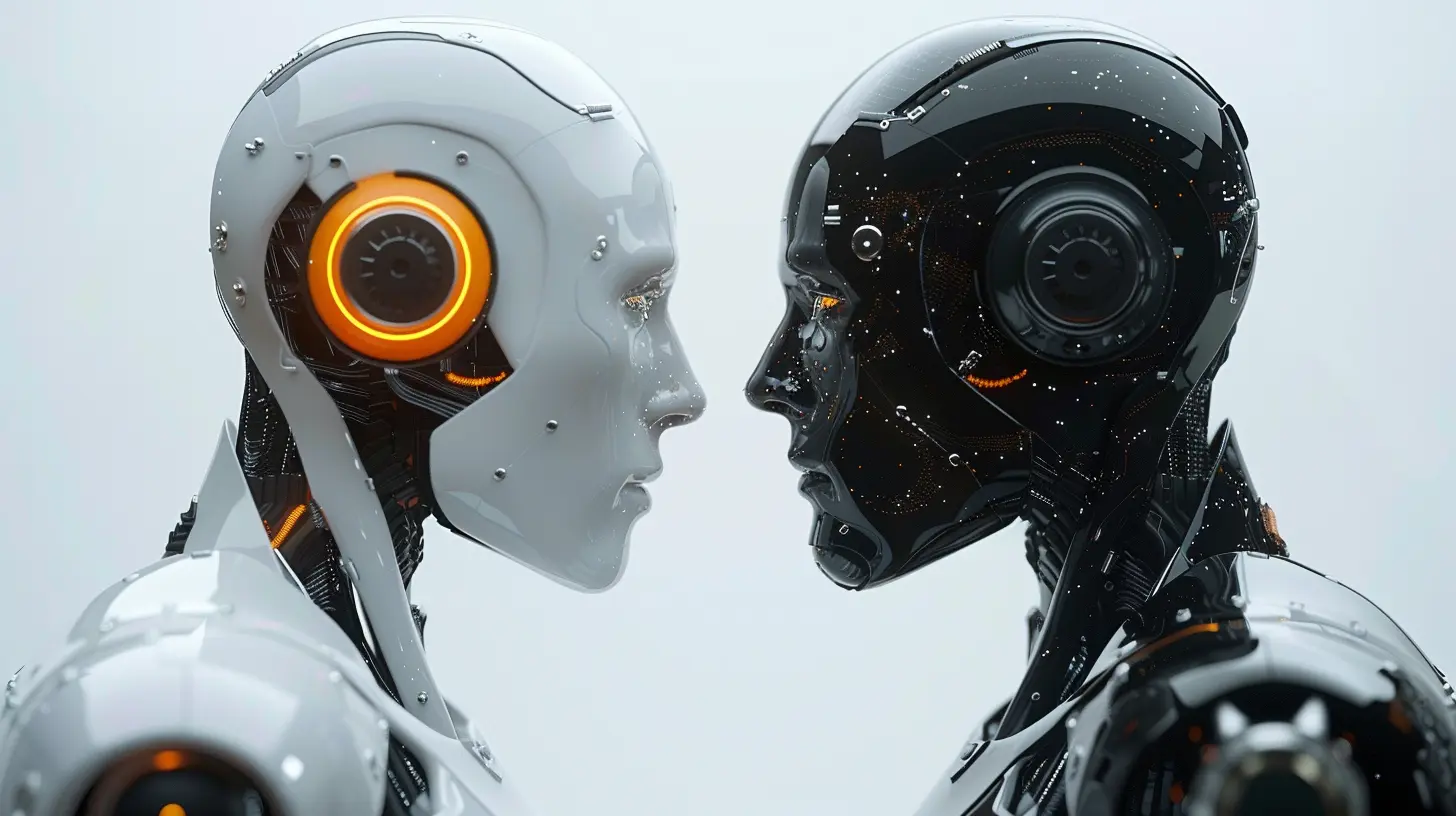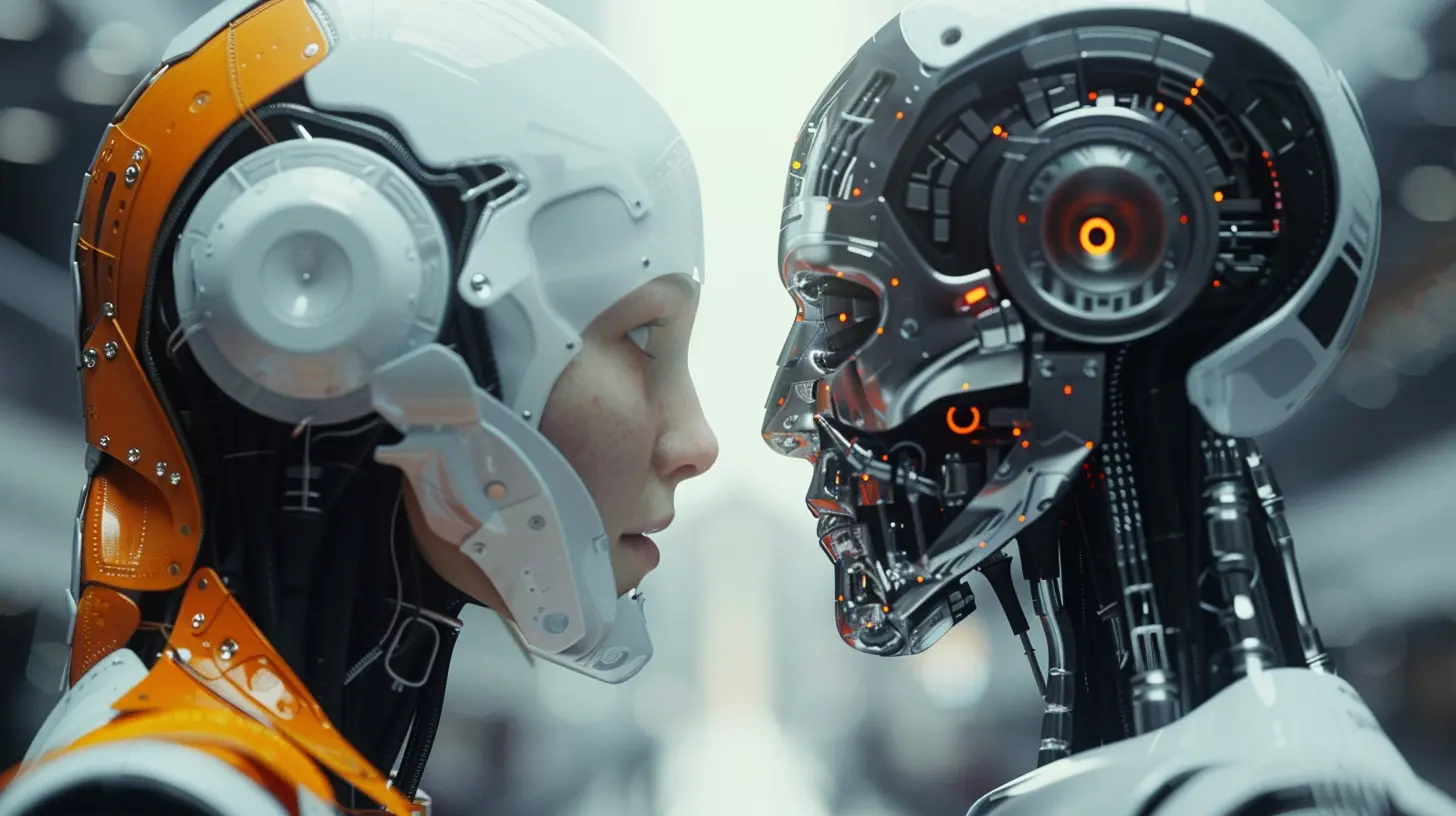Artificial Intelligence vs. Human Intelligence: Collaborators or Competitors?
4 July 2025
Artificial Intelligence (AI) is evolving at an unprecedented pace, making its presence felt in nearly every aspect of our lives. But as AI becomes more sophisticated, it raises an intriguing question: Is AI a collaborator working alongside humans, or is it a competitor poised to replace us?
This debate isn’t just about technology—it’s about the future of work, creativity, and even human identity. So, let’s break it down and see whether AI and human intelligence are working together as allies or battling for dominance. 
Understanding Human Intelligence
Human intelligence is what sets us apart from every other living being. It’s the ability to reason, think critically, and be creative. Unlike AI, human intelligence is shaped by emotions, experiences, and consciousness.Humans have something AI can't (at least, not yet)—intuition and abstract thinking. We don’t just process data; we reflect, imagine, and dream. Our intelligence is fluid, constantly adapting to new situations and learning from past events.
Key Traits of Human Intelligence:
- Creativity and innovation
- Emotional intelligence
- Critical thinking
- Ethical reasoning
- Adaptability
Humans are not just programmed to respond to inputs. We make mistakes, learn from them, and improve—which is something AI still struggles with. 
Understanding Artificial Intelligence
AI, on the other hand, is all about data. It processes enormous amounts of information at lightning speed and identifies patterns more efficiently than any human ever could. From self-driving cars to AI-generated art, it’s proving just how powerful it can be.AI doesn’t have emotions or self-awareness, but it excels at automation, predictive analytics, and even decision-making—up to a certain extent. Machine learning and neural networks have allowed AI to simulate aspects of human intelligence, but at its core, AI is still just an advanced problem-solving tool.
Key Traits of AI:
- Speed and efficiency
- Pattern recognition
- Automation of repetitive tasks
- Handling big data
- Performing complex calculations
Unlike humans, AI doesn’t get tired or distracted. It doesn’t need motivation, and it never has a bad day. That makes it highly reliable for tasks that require precision and repetition. 
AI vs. Human Intelligence: Strengths and Weaknesses
Let’s put AI and human intelligence head-to-head and see where each excels.1. Creativity and Innovation
This is where humans dominate. AI can generate text, images, music, and even code, but it lacks true creativity. It can only work with what already exists, remixing and regurgitating data in new ways. Humans, on the other hand, create new ideas from scratch—the kind that leads to groundbreaking inventions and artistic masterpieces.Winner: Humans
2. Speed and Efficiency
AI processes data in milliseconds. Give it a massive dataset, and it can sort, analyze, and make predictions faster than any human ever could. In fields like finance, medicine, and logistics, this ability is invaluable. It’s why AI-powered tools are transforming industries.Winner: AI
3. Emotional Intelligence
AI can mimic human conversation, but it doesn’t have real empathy. It can detect emotional cues in text or voice patterns, but it doesn’t “feel” anything. Humans, on the other hand, navigate complex emotions and social interactions naturally. Relationships, teamwork, and leadership thrive because of human emotional intelligence.Winner: Humans
4. Learning and Adaptation
AI learns through machine learning algorithms, but it does so based on training data. It doesn’t have human-like intuition or the ability to think outside the box. Humans, however, learn from a mix of experience, emotion, and abstract thinking. AI can improve over time, but humans remain the superior learners in unpredictable environments.Winner: Humans
5. Repetitive Tasks and Automation
When it comes to repetitive or data-driven tasks, AI outshines humans easily. From manufacturing to data entry, AI can handle mundane jobs flawlessly. Humans, on the other hand, tend to make errors and get fatigued.Winner: AI
6. Problem-Solving in Unpredictable Situations
AI excels in structured problem-solving, but in unpredictable environments, it falls short. Humans can assess risk, make judgment calls, and adapt on the fly. AI needs pre-existing data to make decisions, which limits its ability to handle new and unexpected challenges.Winner: Humans 
AI and Humans: Collaborators, Not Rivals
While AI is impressive, it still can’t replace human intelligence. Instead, the greatest potential lies in collaboration. We’re already seeing AI assisting doctors in diagnosing diseases, helping writers generate ideas, and automating tedious business tasks.1. AI as a Tool for Human Enhancement
AI isn’t meant to take away human jobs—it’s meant to enhance human abilities. Think about AI-powered assistants like Siri or Google Assistant. They don’t replace humans; they help us manage tasks more efficiently.In fields like healthcare, AI can analyze scans and detect diseases faster than doctors, but it still needs human oversight. In creative industries, AI-generated content is improving workflow, but true artistic direction comes from people.
2. The Future of Work: Humans and AI Together
The real question isn’t whether AI will replace humans—it’s how we’ll work together. Many jobs will evolve rather than disappear. People will need to learn new skills to work alongside AI, focusing more on creativity, strategy, and emotional intelligence while leaving repetitive tasks to machines.3. Ethical Considerations
Of course, AI comes with ethical concerns. Issues like bias in AI algorithms, data privacy, and job displacement need to be addressed. But AI itself is not inherently bad—it’s how we use it that matters. Governments, companies, and individuals need to ensure AI is used responsibly and ethically.Will AI Ever Surpass Human Intelligence?
This is the million-dollar question. Some experts believe AI could reach a level where it surpasses human intelligence—this concept is known as artificial general intelligence (AGI). But as of now, AI lacks true consciousness, emotions, and the ability to think independently.Even if AI becomes more advanced, human intelligence is unique because of its depth, creativity, and emotional awareness. AI might outperform us in calculations and efficiency, but it’s unlikely to replicate the full range of human thought and experience any time soon.
Conclusion
At the end of the day, AI is a tool, not a threat. It’s here to enhance human capabilities, not replace them. While AI excels in processing data and performing tasks quickly, human intelligence remains unmatched in creativity, emotional depth, and problem-solving in unpredictable situations.So, are AI and human intelligence competitors? Not really. Instead, they function best as collaborators—each bringing unique strengths to the table. The future isn’t about AI vs. humans; it’s about how we can work together to create a better world.
all images in this post were generated using AI tools
Category:
Artificial IntelligenceAuthor:

Jerry Graham
Discussion
rate this article
1 comments
Daniel Benton
This article effectively explores the nuanced relationship between artificial and human intelligence, highlighting their potential as collaborators rather than mere competitors. It raises critical questions about the ethical implications and future of AI integration, emphasizing the need for a symbiotic approach to harness their respective strengths.
July 15, 2025 at 12:35 PM

Jerry Graham
Thank you for your insightful comment! I'm glad you found the article's exploration of AI and human intelligence as collaborators thought-provoking. Your points on ethics and symbiosis are crucial for our future integration.


